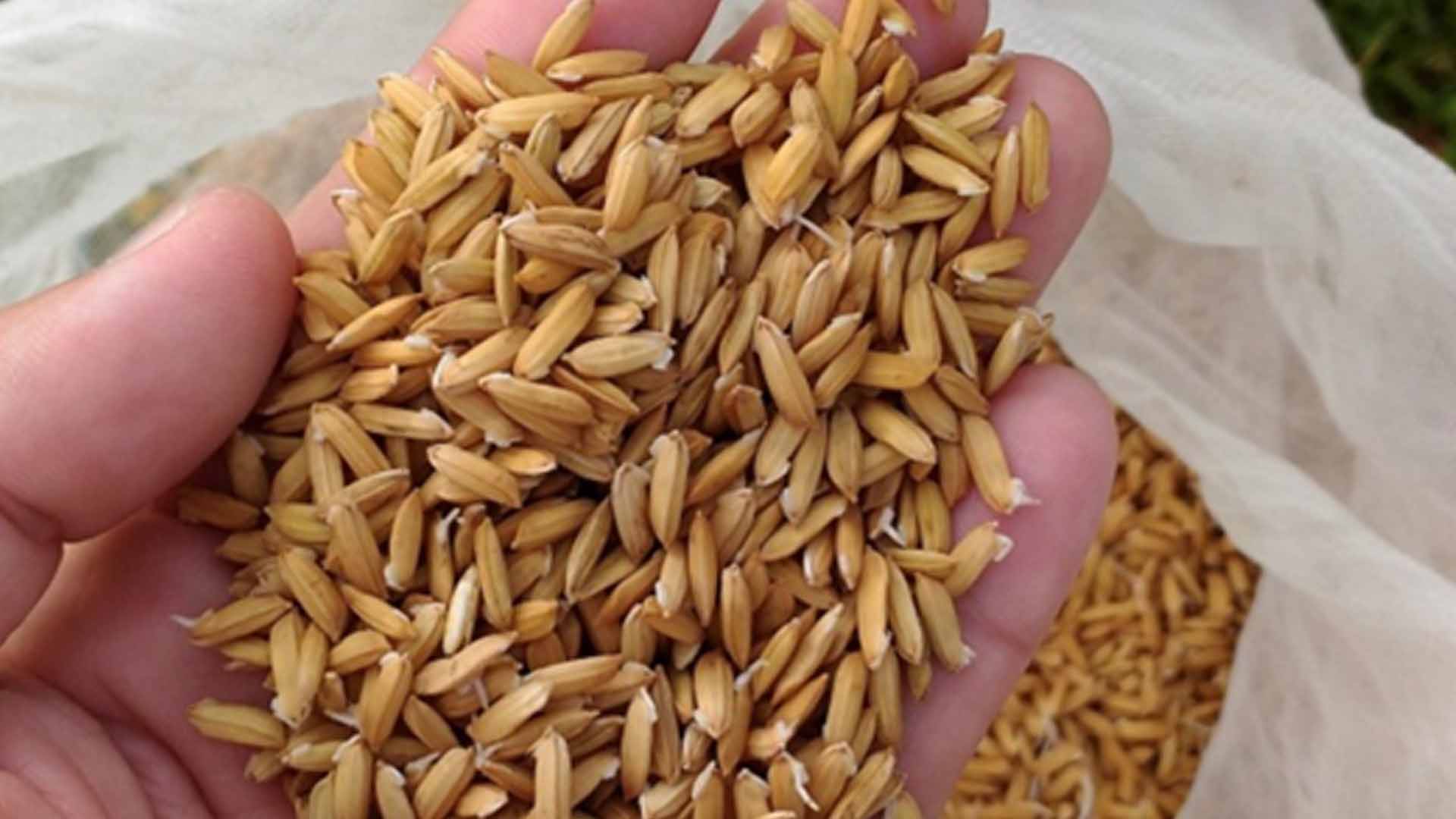As farmers recover from the onslaught of recent typhoons, researchers from the Department of Agriculture-Philippine Rice Research Institute (DA-PhilRice) urge rice farmers to plant high-quality inbred seeds of a recommended variety as this helps increase yield by 10-15%.
Fredierick Saludez, DA-PhilRice agriculturist said that the use of high-quality inbred seeds results in high germination rate, lower seeding rate, more vigorous seedlings, and more efficient crop establishment.
“Crops from high-quality seeds are resistant against pests and diseases. They also grow, mature, and ripe uniformly, which leads to more efficient harvesting activities,” Saludez said in a recent Palay Aralan session aired through the agency’s social media page.
Saludez said that observing the characteristics of seeds can help farmers differentiate the high-quality seeds from the low-quality ones.
“High-quality seeds are relatively pure, have fewer weed seeds, free from visible seed-borne diseases, full and uniform in size, and have at least 85% germination rate. Low-quality seeds, on the other hand, have plenty of impurities such as weed seeds, seeds of other crop species, and inert materials like soil. They are damaged, deformed, have visible seed-borne pests and diseases, and low germination,” he explained.
Currently, farmers in typhoon-stricken areas are prioritized under the Rice Competitiveness Enhancement Fund – Seed Program, and are receiving free high-quality inbred rice seeds.
Farmers are further advised to make sure that seeds they use are certified by the Bureau of Plant Industry-National Seed Quality Control Services (BPI-NSCQS).
“If there are no accredited seed growers in the locality, high-quality seeds may be sourced from farmers who can produce their own high-quality seeds. Farmer-produced seeds should pass germination re-test to determine their quality. The re-test may be done by the farmer or NSCQS,” Saludez stressed.
In addition, researchers recommend that seeds to be used are of recommended varieties.
“Recommended varieties are adapted to local conditions. They are resistant to pests and biotic stresses like drought and flood, have produced relatively stable and high yield in adaptability trials, and are acceptable to farmers,” Saludez said.
He explained that recommended varieties also have high demand in the local market.
“Farmers often prefer new varieties, believing that they yield better. However, a variety may be released based on reasons other than yield such as good eating quality and resistance to pests,” he said.
He added that recommended varieties suit the environment, address a prevailing local field problem, or have performed well in at least two seasons of adaptability trials.
“If these factors are considered in choosing the seeds you plant, coupled with other good farming practices, there is a good chance that you’ll reap an abundant harvest,” he concluded.





















